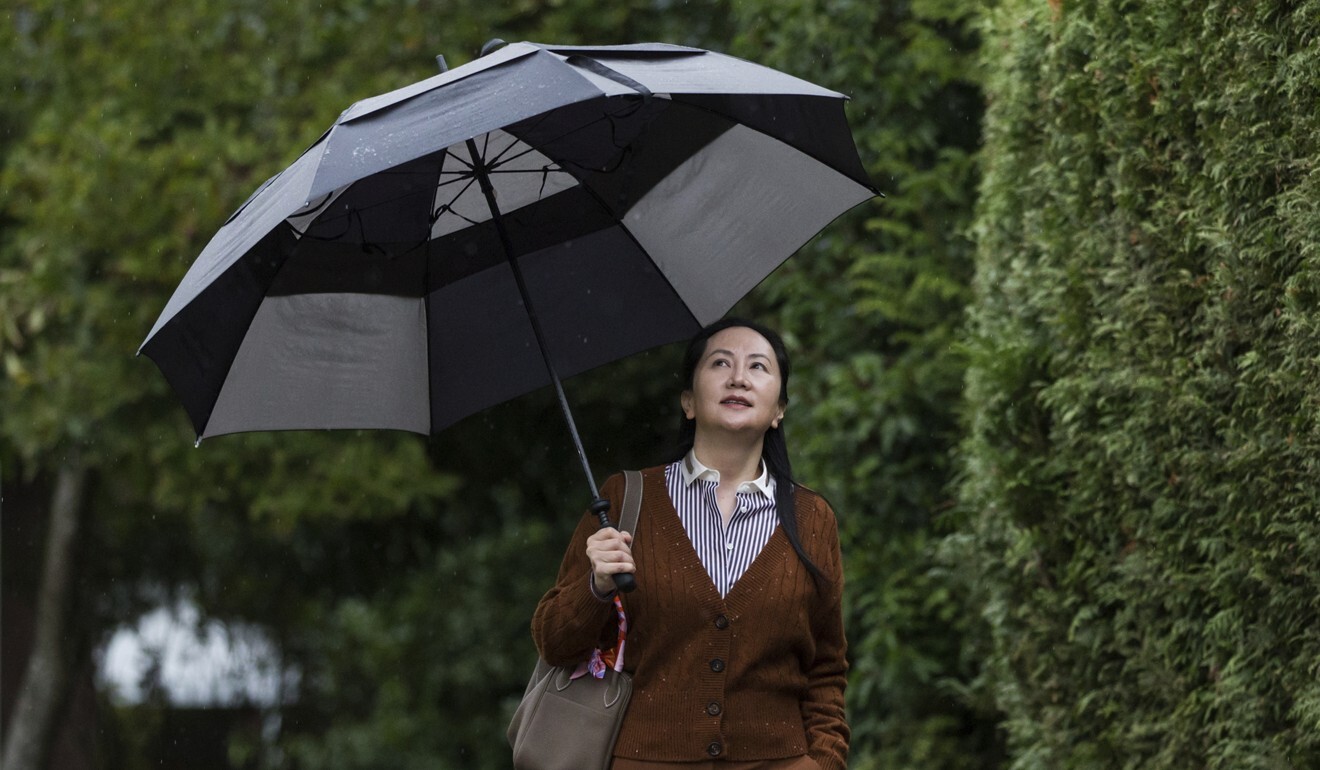
Canada court rejects Meng Wanzhou’s bid to see documents about arrest that officials fear could damage ties with China
- In a blow to the Huawei executive, a Federal Court judge has ruled that six spy agency documents will remain redacted
- Meng’s lawyers, fighting a US bid for her extradition, wanted to see the full documents to bolster their claim that she is the victim of an abuse of process
Huawei executive Meng Wanzhou has lost a court bid to see unredacted Canadian spy agency documents related to her arrest. Government lawyers had argued that they should be withheld on national security grounds and had the potential to damage Canada’s relations with China.
Lawyers for Meng, who is fighting a request by the United States to have her extradited from Vancouver to face fraud charges in New York, had sought the six unaltered documents from Canada’s Security Intelligence Service (CSIS) to bolster her claim that her arrest was an abuse of process.
But in a Canadian Federal Court ruling that was made on Friday and released on Tuesday, Justice Catherine Kane said “there is no further information in the CSIS documents that is relevant to the abuse of process as claimed by Ms Meng”.
“If any of the redacted information were marginally relevant – which it is not – the court would find that its disclosure would be injurious [to the public interest],” she wrote.

Lawyers for the attorney general of Canada, who are representing US interests in Meng’s battle against extradition, had agreed to lift some of previous redactions and provide short summaries of others.
But they argued that lifting the remaining redactions could damage Canadian national security and international relations – namely, with China.
Kane agreed. “The court finds that information included in the six documents … is not relevant to the allegations of abuse of process described by counsel for Ms Meng,” Kane said in her ruling. “The information does not provide the ‘missing pieces of the puzzle’ that Ms Meng seeks.”
Meng’s application to lift the security bans was made in Federal Court in Ottawa, but her extradition case itself is being heard in British Columbia’s Supreme Court. The case is expected to last well into 2021.
Her lawyers say Meng should be freed because her detention at Vancouver’s airport on December 1, 2018, was an abuse of process, in which Canadian authorities deliberately delayed arresting her for three hours so that border officers could conduct an illicit interrogation and gather evidence on behalf of the US FBI.

The exact nature of the redacted portions of the CSIS documents remains secret to the public and Meng. But support for the security ban came from CSIS and Global Affairs Canada representatives, who provided affidavits describing the importance of such national security protections and the relationship between Canada and China.
The six documents consist of three CSIS “sitrep” situation reports, two sets of notes and an email.
Among the redactions that the attorney general’s lawyers agreed to lift was a section of a December 5, 2018, CSIS email that said: “The FBI has asked the [Royal Canadian Mounted Police] for surveillance on MENG in the event that she is released to ensure bail conditions are met. The RCMP was amenable, however, advised that they were unable to afford coverage on a 24/7 basis.”
A summary provided in lieu of redacted words in one of the CSIS sitreps states: “Advanced communications to CSIS came via FBI HQ to CSIS Washington and then via FBI to CSIS HQ.”
Another says: “RCMP FPNS informed CSIS on 2018 12 04 that MENG and JI talked to CBSA for some time revealing information relevant to a fuller understanding of the case.”
That is a reference to Ji Hui, the president of Huawei’s finance department who was Meng’s travelling companion.
Huawei lawyers say US evidence ‘unreliable’ in Meng extradition case
Because Meng’s lawyers were banned from seeing the full documents in question, discussions about their release were conducted with Kane by the government lawyers and a barrister with a special security clearance who was appointed to perform the role of amicus curiae, or “friend of the court”. The job of the amicus, Anil Kapoor, was to assist the court and not to advocate for Meng, although she paid his fees.
The arrest of Meng – Huawei Technologies’ chief financial officer and the daughter of company founder Ren Zhengfei – upended China’s relations with the US and Canada. Two Canadians, Michael Kovrig and Michael Spavor, were subsequently arrested by China and charged with espionage, although their cases are widely seen in Canada as hostage taking by Beijing.

